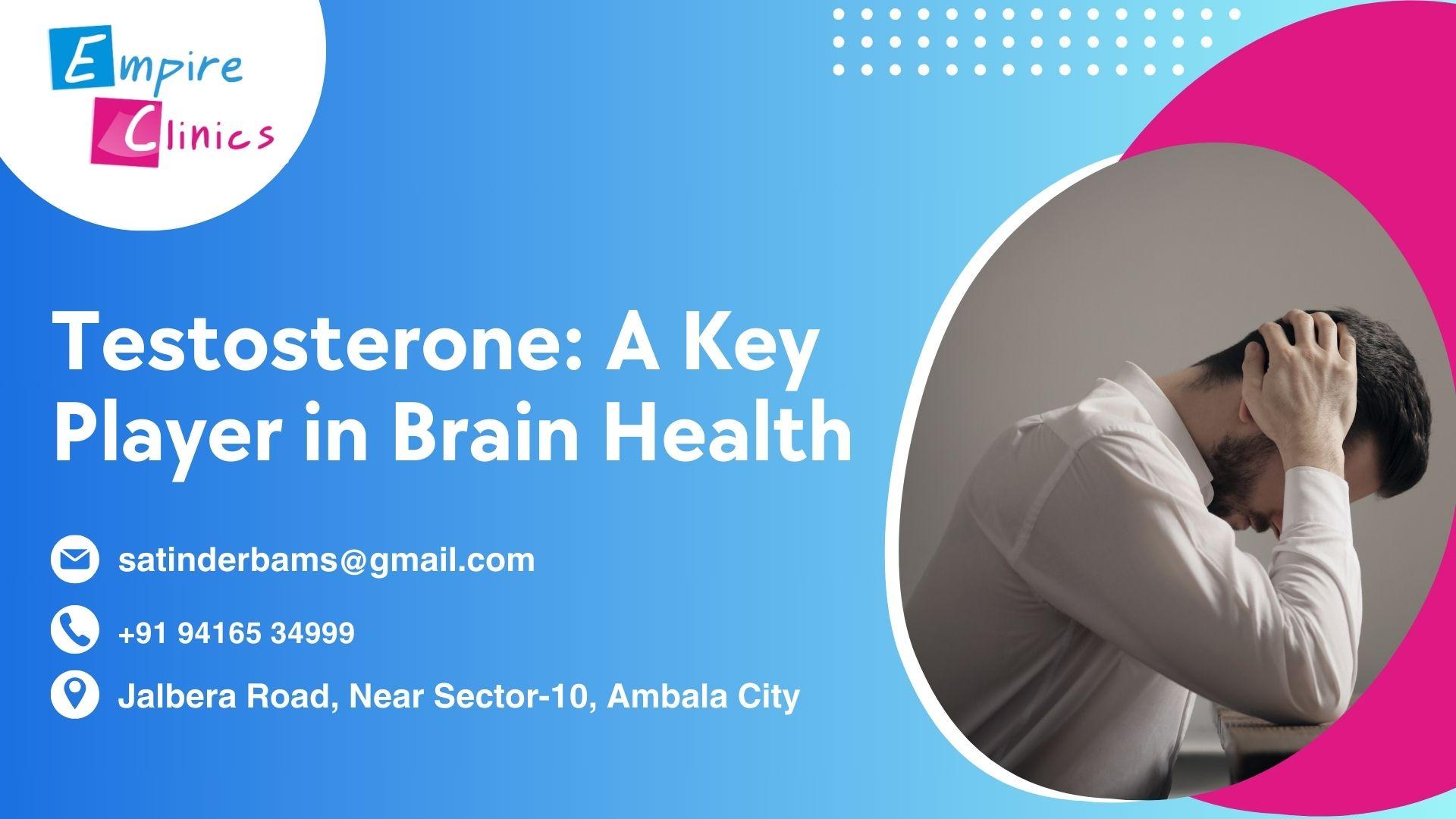Testosterone, a vital hormone predominantly associated with male characteristics and reproductive functions, also plays a significant role in brain health. This steroid hormone, produced mainly in the testes in men and in smaller amounts in the ovaries in women, influences various aspects of brain function, including cognition, mood, and neuroprotection. Understanding the relationship between testosterone and brain health is crucial, particularly as testosterone levels naturally decline with age.
Table of Contents
Testosterone Role in Cognitive Function
1. Memory and Learning
Testosterone has been shown to affect memory and learning. Research indicates that men with higher testosterone levels often perform better in tasks involving spatial abilities, such as navigating or visualizing objects in three dimensions. This is supported by studies demonstrating that testosterone replacement therapy (TRT) in older men can improve spatial memory and other cognitive functions.
2. Verbal Memory
While testosterone is often associated with spatial abilities, it also plays a role in verbal memory. Some studies suggest that women with higher levels of testosterone, whether naturally or through supplementation, can experience improvements in verbal memory tasks. This indicates that testosterone may help balance different types of cognitive functions across genders.
Mood and Emotional Regulation
1. Mood Stability
Testosterone has a significant impact on mood regulation. Low levels of testosterone are linked to mood disorders such as depression and anxiety. Men with hypogonadism, a condition characterized by low testosterone levels, often experience mood instability and depression. TRT has been shown to improve mood and overall quality of life in these individuals.
2. Anxiety and Stress
Testosterone may also play a role in reducing anxiety and stress. Animal studies have demonstrated that testosterone's can decrease anxiety-like behaviors. In humans, higher testosterone levels are often associated with lower levels of stress and anxiety. This suggests that maintaining optimal testosterone levels is important for emotional well-being.
Neuroprotection
1. Brain Structure and Function
Testosterone contributes to the maintenance of brain structure and function. It influences the growth and development of neurons and synapses, which are crucial for cognitive processing. Studies have shown that testosterone can protect neurons from apoptosis (programmed cell death), particularly in regions such as the hippocampus, which is critical for memory formation.
2. Neurodegenerative Diseases
There is growing evidence that testosterone may have a protective effect against neurodegenerative diseases such as Alzheimer's and Parkinson's. Low testosterone levels have been associated with an increased risk of Alzheimer's disease. Some studies suggest that testosterone therapy might slow the progression of neurodegenerative diseases, although more research is needed to confirm these findings.
Testosterone Decline with Age
1. Age-Related Cognitive Decline
As men age, their testosterone levels naturally decline. This decline is associated with age-related cognitive decline, including memory loss and decreased executive function. Maintaining adequate testosterone levels through lifestyle changes, dietary adjustments, and medical interventions can help mitigate some of these effects.
2. Andropause
Andropause, often referred to as male menopause, describes the gradual decline in testosterone levels in aging men. Symptoms of andropause include fatigue, depression, irritability, and cognitive decline. Understanding and managing andropause is crucial for maintaining brain health and overall well-being in older men.
Testosterone Replacement Therapy (TRT)
1. Benefits and Risks
TRT is a common treatment for men with low testosterone levels. It can improve mood, cognitive function, and overall quality of life. However, TRT is not without risks. Potential side effects include cardiovascular issues, prostate problems, and changes in red blood cell count. It is important for individuals considering TRT to discuss the potential benefits and risks with their healthcare provider.
2. Alternatives to TRT
In addition to TRT, there are natural ways to boost testosterone levels. These include regular exercise, a healthy diet rich in nutrients like zinc and vitamin D, adequate sleep, and stress management. Maintaining a healthy lifestyle can support optimal testosterone levels and promote brain health.
Have any queries about Testosterone Replacement Therapy (TRT)
Testosterone plays a multifaceted role in brain health, influencing cognitive function, mood regulation, and neuroprotection. Its impact on memory, learning, and executive function underscores the importance of maintaining optimal testosterone levels throughout life. Additionally, testosterone's role in mood stability and its potential neuroprotective effects highlight its significance in mental and emotional well-being.
As men age and testosterone levels decline, the risk of cognitive decline and mood disorders increases. Understanding the relationship between testosterone and brain health can help in developing strategies to maintain cognitive function and emotional stability in older age. Whether through TRT or natural lifestyle modifications, optimizing testosterone levels is a key component of promoting brain health and overall well-being.







